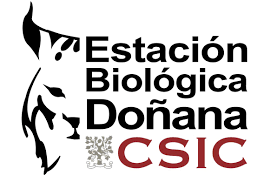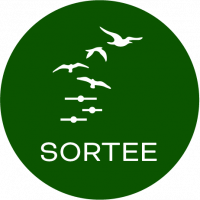Events :: Cursos :: Course Systematic Reviews and Meta-analysis in R
This course provides a practical introduction to modern methods of evidence synthesis, with a focus on systematic review and meta-analysis in ecology and evolution. |
|
||||||||||||||||
Objectives:
Evidence synthesis encompasses systematic reviews, meta-analyses, and other approaches such as systematic maps and research weaving, which allow us to summarise existing knowledge. When preceded by a systematic review, meta-analysis becomes a powerful statistical tool for quantitatively integrating findings across studies to: (1) test overall effects and their generalizability, (2) understand patterns and context dependencies, and (3) generate and test second-order hypotheses. Systematic reviews and meta-analyses have become standard approaches for synthesising evidence both qualitatively and quantitatively across disciplines, with their use increasing exponentially over the past decade. This course will offer a hands-on introduction to modern methods of evidence synthesis, with a particular focus on systematic review and meta-analysis in ecology and evolution.
We will begin with a detailed overview of the systematic review approach, focusing on question formation, systematic searching and study screening. Next, we will focus on the meta-analytic process, specifically on effect size choice, data extraction, data analysis, and importantly, result interpretation. We will make use of multilevel meta-analysis and meta-regression, with an introduction on how to account for phylogeny when multiple species are synthesised. Since meta-analytic results cannot be interpreted without a deep understanding of heterogeneity and publication bias, we will cover in detail how to estimate, adjust for, and interpret heterogeneity and publication bias. This course will include a mix of lectures and hands-on exercises using real meta-analytic datasets. The emphasis throughout the course is on the application of the various methods and the interpretation of the results using the free software R and the R packages ‘metafor’ (Viechtbauer 2010) and ‘orchaRd’ (Nakagawa et al. 2023). The course will follow the principles of open science and it will include a specific module on open science covering from database versioning to writing dynamic documents in Quarto. During the course, there will be a strong focus on the importance of adhering to preferred reporting items for systematic reviews and meta-analyses in ecology and evolutionary biology (PRISMA EcoEvo; O’Dea et al. 2021). Throughout, we will consider examples of how to interpret results and present them using tables and data visualization, and for each step, we will provide literature and practical resources (e.g., R scripts).
Programme:
Target audience:
This course is designed to be as self-contained as possible. However, we will assume basic familiarity with research design and statistical concepts (e.g., hypothesis testing, variance, correlations, linear regression). While it is not strictly necessary, it would help the participants to familiarise themselves with systematic reviews and meta-analyses before the course, either by reading brief introductions (see references below) or looking at their favourite examples from their field. Although we will present formulas and statistical notations, the course will use conceptual understanding and visualisation to understand and interpret meta-analytical models. All the computations will be done using R. We will go through all the basic (and more advanced) steps of conducting systematic reviews, meta-analyses and meta-regressions during the course, and all the R scripts will be provided. Although this is not an R programming course, some familiarity with R is necessary. If you are new to R, please explore an introductory resource ahead of time (here is one you could try).
How to Prepare for the Course:
Before the workshop, we would like you to make sure your R (and R-Studio) are up to date (use sessionInfo() in R to find the version; anything over 4.3.0 would work for the materials used in this workshop). Although not strictly necessary, we recommend running R from within RStudio. Please, download and install (or update) RStudio from posit. Also before the workshop, please install some of the R packages needed to follow along and do some exercises during the workshop. Run the code given below:
# install.packages("pacman") #it makes loading, installing, and updating R packages super easy!
# Here is a list of all the packages we would need for running all the codes
pacman::p_load(here,
knitr,
revtools,
synthesisr,
dplyr,
tidyverse,
ggplot2,
metafor,
ggstatsplot,
ggplot2,
gridExtra,
metaDigitise,
ape,
rotl,
ggpubr,
cowplot,
lme4,
lmerTest)
# We also need orchaRd package that we will use. To install the developing version of orchaRd
pacman::p_load(devtools, tidyverse, metafor, patchwork, R.rsp, emmeans)
# devtools::install_github("daniel1noble/orchaRd", force = TRUE)
library(orchaRd)
#as explained here: https://github.com/daniel1noble/orchaRd
# For plotting trees, and although not strictly necessary, we may need the `ggtree` R package, which you should be able to install by running:
# if (!require("BiocManager", quietly = TRUE))
# install.packages("BiocManager")
# BiocManager::install("ggtree")
Key references:
- Foo et al. 2021. A practical guide to question formation, systematic searching and study screening for literature reviews in ecology and evolution. Methods in Ecology and Evolution 12 (9): 1705-1720. https://doi.org/10.1111/2041-210X.13654
[How to perform a Systematic Review]
- Gurevitch et al. 2018. Meta-analysis and the science of research synthesis. Nature 555: 175–182. https://doi.org/10.1038/nature25753 [The History of Meta-analysis in Ecology and Evolution]
- Kim et al. 2021. Male size and reproductive performance in three species of livebearing fishes (Gambusia spp.): A systematic review and meta-analysis. Journal of Animal Ecology 90(10):2431-2445 https://doi.org/10.1111/1365-2656.13554
[Pre-registered Meta-analysis in Evolutionary Ecology]
- Mentesana et al. 2025. Do Egg Hormones Have Fitness Consequences in Wild Birds? A Systematic Review and Meta-Analysis. Ecology Letters 28(3):e70100. https://doi.org/10.1111/ele.70100 [Pre-registered Meta-analysis in Evolutionary Ecology]
- O’Dea et al. 2021. Preferred reporting items for systematic reviews and meta-analyses in ecology and evolutionary biology: a PRISMA extension. Methods in Ecology and Evolution 96 (5): 1695-1722. https://doi.org/10.1111/brv.12721
[How to report Systematic Reviews and Meta-analyses in Ecology and Evolution]
- Sánchez-Tójar et al. 2020. The jury is still out regarding the generality of adaptive ‘transgenerational’ effects. Ecology Letters 23(11):1715-1718 https://doi.org/10.1111/ele.13479 [Common Mistakes in Systematic Reviews and Meta-analyses]
- Viechtbauer. 2010. Conducting meta-analyses in R with the metafor package. Journal of Statistical Software, 36(3): 1-48. https://doi.org/10.18637/jss.v036.i03 [Our choice of R package to run meta-analysis, see also: https://www.metafor-project.org/doku.php/diagram]
Characteristics:
Duration: 20 h
Language: The course material is in English and the content will be taught in English, but all questions can be in Spanish.
Maximum number of participants: 22 pax.
Dates: 20-23 october
Daily schedule: 8:30 a 14:30
Venue: Museo Casa de la Ciencia de Sevilla - CSIC Avda. Mª Luisa, S/N, Pabellón de Perú, 41013 - Sevilla
Admission criteria: PhDs and Postdocs have priority
Start date of the registration period: June 17, 2025
Deadline for registration: october 1, 2025
Price: AEET/SIBECOL/AIL/ SEEEE/ SPECO+ EBD and SORTEE members: 200€ (Membership subject to verification)- Others: 300€.
Certification:
The organization will provide certificates of attendance and achievement, once the course completed number of teaching hours. The minimum attendance required is 90% of the total teaching hours, with no possibility of exemption for justified absence.
Academic management:
- Dr. Alfredo Sánchez-Tójar*,(Coordinator) Department of Evolutionary Biology, Bielefeld University, Germany;(alfredo.tojar@gmail.com)
- Dr. Ignasi Bartomeus, Dpto. Ecología Integrativa, Estación Biológica de Doñana, Seville, Spain; (nacho.bartomeus@gmail.com)
Registration
Click on the "Register" link in the box in the upper right corner. The AEET secretariat will send you a notification confirming receipt of your application and your Pre-reservation of your place in the course.The final admission in the course, will be subject to the fulfilment of the admission criteria and you will be sent a personalised notification confirming the reservation of your place at the end of the year.
Payments:
Payment must be made by deposit or bank transfer to the following account: ES70 0073 01005804 9730 5102, in the bank Openbank before 15th September.
Once the payment has been made, please send us a copy of the payment receipt to secretaria@aeet.org.
Do not forget to indicate the details that must appear on the invoice.
Cancellations of attendance notified less than 30 days before the start of the course will not be entitled to a refund.
Our tax data:
ASOCIACIÓN ESPAÑOLA DE ECOLOGÍA TERRESTRE
CIF: G50359017
Dpto. Biología y Geología
Universidad Rey Juan Carlos, URJC
c/Tulipán s/n
28933 Móstoles, Madrid
Organize:

Collaborate:


We will begin with a detailed overview of the systematic review approach, focusing on question formation, systematic searching and study screening. Next, we will focus on the meta-analytic process, specifically on effect size choice, data extraction, data analysis, and importantly, result interpretation. We will make use of multilevel meta-analysis and meta-regression, with an introduction on how to account for phylogeny when multiple species are synthesised. Since meta-analytic results cannot be interpreted without a deep understanding of heterogeneity and publication bias, we will cover in detail how to estimate, adjust for, and interpret heterogeneity and publication bias. This course will include a mix of lectures and hands-on exercises using real meta-analytic datasets. The emphasis throughout the course is on the application of the various methods and the interpretation of the results using the free software R and the R packages ‘metafor’ (Viechtbauer 2010) and ‘orchaRd’ (Nakagawa et al. 2023). The course will follow the principles of open science and it will include a specific module on open science covering from database versioning to writing dynamic documents in Quarto. During the course, there will be a strong focus on the importance of adhering to preferred reporting items for systematic reviews and meta-analyses in ecology and evolutionary biology (PRISMA EcoEvo; O’Dea et al. 2021). Throughout, we will consider examples of how to interpret results and present them using tables and data visualization, and for each step, we will provide literature and practical resources (e.g., R scripts).
Programme:
| Módulo / Contenido | Profesor/es | Nºhoras impartidas |
| Open and Reproducible Science. Data versioning, code sharing and writing dynamic documents. |
Ignasi Bartomeus | 5 |
| Systematic Review: What is it and how do we do it? | Alfredo Sánchez-Tójar | 4 |
| Effect sizes: Understanding what effect sizes are, why we need them, what types are there, and how to calculate them | Alfredo Sánchez-Tójar | 5 |
| Meta-analysis: How to perform a meta-analysis in R | Alfredo Sánchez-Tójar | 4 |
| Publication Bias: What is it, why we need to test for it, and how to do it in R | Alfredo Sánchez-Tójar | 2 |
Target audience:
This course is designed to be as self-contained as possible. However, we will assume basic familiarity with research design and statistical concepts (e.g., hypothesis testing, variance, correlations, linear regression). While it is not strictly necessary, it would help the participants to familiarise themselves with systematic reviews and meta-analyses before the course, either by reading brief introductions (see references below) or looking at their favourite examples from their field. Although we will present formulas and statistical notations, the course will use conceptual understanding and visualisation to understand and interpret meta-analytical models. All the computations will be done using R. We will go through all the basic (and more advanced) steps of conducting systematic reviews, meta-analyses and meta-regressions during the course, and all the R scripts will be provided. Although this is not an R programming course, some familiarity with R is necessary. If you are new to R, please explore an introductory resource ahead of time (here is one you could try).
How to Prepare for the Course:
Before the workshop, we would like you to make sure your R (and R-Studio) are up to date (use sessionInfo() in R to find the version; anything over 4.3.0 would work for the materials used in this workshop). Although not strictly necessary, we recommend running R from within RStudio. Please, download and install (or update) RStudio from posit. Also before the workshop, please install some of the R packages needed to follow along and do some exercises during the workshop. Run the code given below:
# install.packages("pacman") #it makes loading, installing, and updating R packages super easy!
# Here is a list of all the packages we would need for running all the codes
pacman::p_load(here,
knitr,
revtools,
synthesisr,
dplyr,
tidyverse,
ggplot2,
metafor,
ggstatsplot,
ggplot2,
gridExtra,
metaDigitise,
ape,
rotl,
ggpubr,
cowplot,
lme4,
lmerTest)
# We also need orchaRd package that we will use. To install the developing version of orchaRd
pacman::p_load(devtools, tidyverse, metafor, patchwork, R.rsp, emmeans)
# devtools::install_github("daniel1noble/orchaRd", force = TRUE)
library(orchaRd)
#as explained here: https://github.com/daniel1noble/orchaRd
# For plotting trees, and although not strictly necessary, we may need the `ggtree` R package, which you should be able to install by running:
# if (!require("BiocManager", quietly = TRUE))
# install.packages("BiocManager")
# BiocManager::install("ggtree")
Key references:
- Foo et al. 2021. A practical guide to question formation, systematic searching and study screening for literature reviews in ecology and evolution. Methods in Ecology and Evolution 12 (9): 1705-1720. https://doi.org/10.1111/2041-210X.13654
[How to perform a Systematic Review]
- Gurevitch et al. 2018. Meta-analysis and the science of research synthesis. Nature 555: 175–182. https://doi.org/10.1038/nature25753 [The History of Meta-analysis in Ecology and Evolution]
- Kim et al. 2021. Male size and reproductive performance in three species of livebearing fishes (Gambusia spp.): A systematic review and meta-analysis. Journal of Animal Ecology 90(10):2431-2445 https://doi.org/10.1111/1365-2656.13554
[Pre-registered Meta-analysis in Evolutionary Ecology]
- Mentesana et al. 2025. Do Egg Hormones Have Fitness Consequences in Wild Birds? A Systematic Review and Meta-Analysis. Ecology Letters 28(3):e70100. https://doi.org/10.1111/ele.70100 [Pre-registered Meta-analysis in Evolutionary Ecology]
- O’Dea et al. 2021. Preferred reporting items for systematic reviews and meta-analyses in ecology and evolutionary biology: a PRISMA extension. Methods in Ecology and Evolution 96 (5): 1695-1722. https://doi.org/10.1111/brv.12721
[How to report Systematic Reviews and Meta-analyses in Ecology and Evolution]
- Sánchez-Tójar et al. 2020. The jury is still out regarding the generality of adaptive ‘transgenerational’ effects. Ecology Letters 23(11):1715-1718 https://doi.org/10.1111/ele.13479 [Common Mistakes in Systematic Reviews and Meta-analyses]
- Viechtbauer. 2010. Conducting meta-analyses in R with the metafor package. Journal of Statistical Software, 36(3): 1-48. https://doi.org/10.18637/jss.v036.i03 [Our choice of R package to run meta-analysis, see also: https://www.metafor-project.org/doku.php/diagram]
Characteristics:
Duration: 20 h
Language: The course material is in English and the content will be taught in English, but all questions can be in Spanish.
Maximum number of participants: 22 pax.
Dates: 20-23 october
Daily schedule: 8:30 a 14:30
Venue: Museo Casa de la Ciencia de Sevilla - CSIC Avda. Mª Luisa, S/N, Pabellón de Perú, 41013 - Sevilla
Admission criteria: PhDs and Postdocs have priority
Start date of the registration period: June 17, 2025
Deadline for registration: october 1, 2025
Price: AEET/SIBECOL/AIL/ SEEEE/ SPECO+ EBD and SORTEE members: 200€ (Membership subject to verification)- Others: 300€.
Certification:
The organization will provide certificates of attendance and achievement, once the course completed number of teaching hours. The minimum attendance required is 90% of the total teaching hours, with no possibility of exemption for justified absence.
Academic management:
- Dr. Alfredo Sánchez-Tójar*,(Coordinator) Department of Evolutionary Biology, Bielefeld University, Germany;(alfredo.tojar@gmail.com)
- Dr. Ignasi Bartomeus, Dpto. Ecología Integrativa, Estación Biológica de Doñana, Seville, Spain; (nacho.bartomeus@gmail.com)
Registration
Click on the "Register" link in the box in the upper right corner. The AEET secretariat will send you a notification confirming receipt of your application and your Pre-reservation of your place in the course.The final admission in the course, will be subject to the fulfilment of the admission criteria and you will be sent a personalised notification confirming the reservation of your place at the end of the year.
Payments:
Payment must be made by deposit or bank transfer to the following account: ES70 0073 01005804 9730 5102, in the bank Openbank before 15th September.
Once the payment has been made, please send us a copy of the payment receipt to secretaria@aeet.org.
Do not forget to indicate the details that must appear on the invoice.
Cancellations of attendance notified less than 30 days before the start of the course will not be entitled to a refund.
Our tax data:
ASOCIACIÓN ESPAÑOLA DE ECOLOGÍA TERRESTRE
CIF: G50359017
Dpto. Biología y Geología
Universidad Rey Juan Carlos, URJC
c/Tulipán s/n
28933 Móstoles, Madrid
Organize:

Collaborate:






